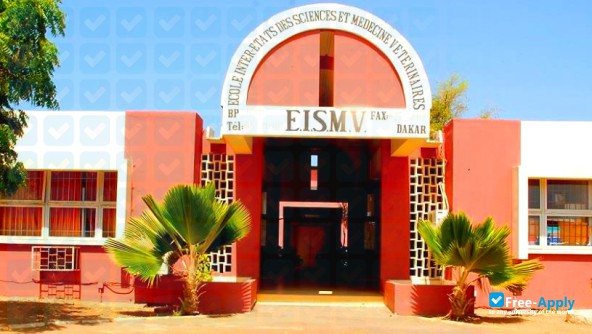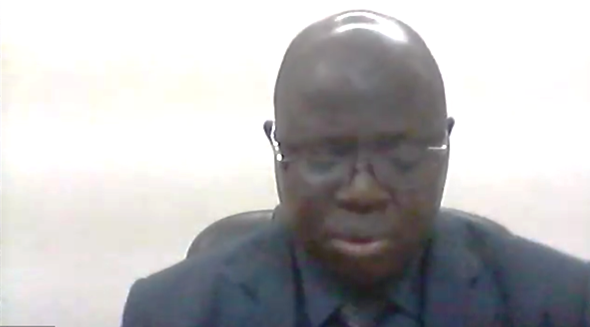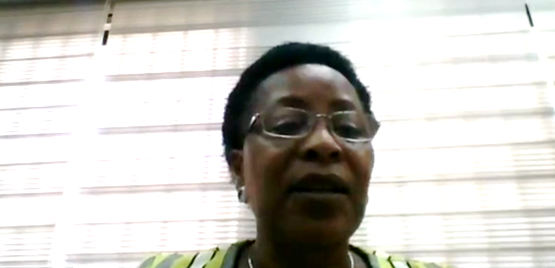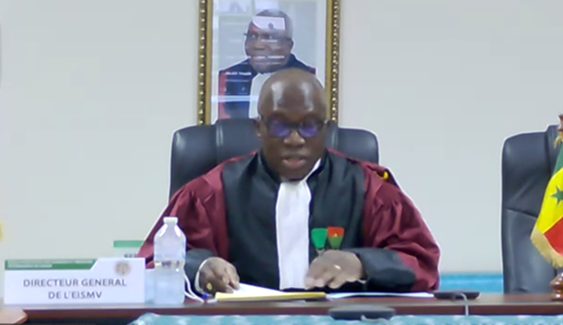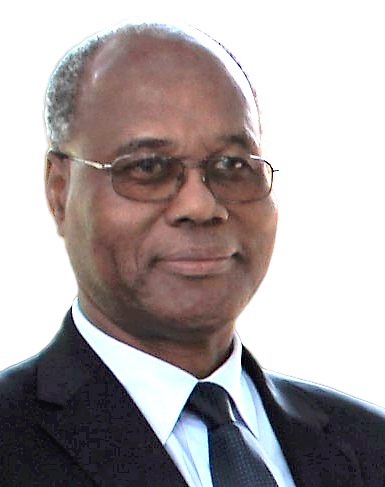Welcome remarks by Prof. Youssao Issaka, President of the National Organizing Committee of the Board of Directors.
On 2 December 2021, Benin hosted the virtual meeting of the 50th Session of the Board of Directors of the Inter-States School of Veterinary Sciences and Medicine (EISMV) of Dakar, composed of the Ministers of Higher Education of the Member States of the School (Benin, Burkina Faso, Burundi, Cameroon, Central African Republic, Chad, Congo, Cote d’Ivoire, Gabon, Mali, Mauritania, Niger, Senegal and Togo).
Opening speech delivered by Prof. Eléanore Yayi Ladekan, Minister of Higher Education and Scientific Research of Benin
The host Minister, Prof Eléonore Yayi Ladekan, Minister of Higher Education and Scientific Research of Benin chaired the session. Prof. Youssao Issaka, President of the National Organizing committee of the Board of Directors gave the welcome remarks, The Director General of the EISVM Prof. Yalacé Kaboret gave the introductory speech for the expert presentations.
Above: Introductory speech by Prof. Yalacé Kaboret, Director General of EISMV
Dr. Karim Tounkara, OIE Regional Representative for Africa, spoke on behalf of the Director General of the OIE, Dr. Monique Eloit. The speech emphasised the need of integrating the ‘One Health’ approach in curricula for undergraduate and post graduate training, focusing on biodiversity and the environment, given the change of living dynamics in a post COVID era.
Dr. Karim Tounkara, OIE Regional Representative for Africa
OIE encouraged that the training provided at EISMV should prepare future veterinary doctors for public health approaches that fit into global health policies.
The meeting continued as a closed session of the members of the Board of Directors.
Dr. Monique Eloit, Director General , OIE
Your Excellencies,
Ladies and Gentlemen,
First of all, allow me to convey to you the warm greetings of Dr. Monique Eloit, Director General of the World Organization for Animal Health (OIE).
Now I have the pleasure of reading Dr. Eloit’s message to you in full.
Excellencies, Ladies and Gentlemen of the Inter-State School of Veterinary Science and Medicine of Dakar
I would like to thank you for the opportunity to address you, the administrators, who are responsible for the political orientation of the Inter-State School of Veterinary Sciences and Medicine of Dakar.
In my previous address at the end of 2019, I defined our vision of the veterinarian as a physician but also as a contributor to the socio-economic development of countries. Only a few months later, our planet was shaken by the COVID 19 pandemic.
In a matter of months, the COVID-19 pandemic disrupted our lifestyles and severely challenged our food supply chains, livelihoods, economies and animal production systems. It has provided further evidence, if any were needed, of the need for intersectoral collaboration in responding to global health crises; collaboration based on the One Health approach, which integrates human medicine, veterinary medicine, public health and environmental information.
I would therefore encourage the EISMV to consider introducing the “one health” concept into its curriculum, both undergraduate and postgraduate, with a strong focus on biodiversity, environmental health and especially wildlife, which is the source of 75% of emerging and re-emerging human diseases. The OIE Wildlife Health Framework published last year could be an important source of information to pass on to our future veterinary colleagues who will need to be fully recognised and integrated into global health systems as part of the health work-forces.
In general, the OIE suggests that the training provided at EISVM should prepare future veterinary doctors for public health approaches that fit into global health policies.
The activities of the veterinary services were recognised as essential to the response to the pandemic and therefore continued during the crisis to ensure the supply of animal and animal products. In addition, veterinary laboratories on the African continent assisted public health services by testing COVID 19 samples following the recommendations published by the OIE for this purpose.
I am pleased to inform you that the OIE has been preparing for several years for situations such as the one imposed by COVID-19 by considering transforming itself into a World Health Organisation that supports capacity building of its Member States to be more resilient (in accordance with Resolution No. 31 of the World Assembly of Delegates of May 2021) while continuing to play its role as an essential component of the tripartite and now tripartite+ agreement with the arrival of UNEP. It is in this perspective that the IOE was restructured in January 2020 to include in its organizational chart a Foresight Unit and a Preparedness and Resilience Service, to take into account the global change that is reshaping our environment in terms of climate, human behavior, land use, etc.
Excellencies
Ladies and Gentlemen,
With a year’s delay due to COVID 19, the World Assembly of Delegates adopted in May 2021 the 7th IOE Strategic Plan for the period 2021-2025 comprising 5 strategic objectives: Scientific Expertise; Data Governance; Meeting Members’ Needs; Collaboration with Partners; Efficiency and Agility.
As you will see, the OIE is committed to good data governance based on digital transformation through a data strategy. This commitment will be supported by a strong digitalization of services offered, in particular in the field of training and development of PVS missions and twinning programmes.
EISVM could be a strategic partner in the field of online training (e-learning) as a member of the platform of the 8 OIE Collaborating Centres on the training of official veterinarians, whose secretariat is hosted by the ENSV-FVI in Lyon. Lyon will also be the headquarters of the new WHO Academy, with which the OIE will have closer cooperation, particularly on the subjects of “One Health” and preparedness and resilience.
I would also like to mention the collaboration between the OIE and EISVM for the implementation of the project (which I announced to you in 2019): Professionalization of Veterinary Para-professionals launched a few months ago. We hope that this project will be a welcome contribution to reducing the shortage of animal health personnel in the West African sub-region.
In conclusion, I would like to extend my warmest congratulations to EISVM for holding the 50th Session of its Board of Directors and to you, Excellencies, members of the Board of Directors, I wish you very fruitful exchanges.
I thank you all.
